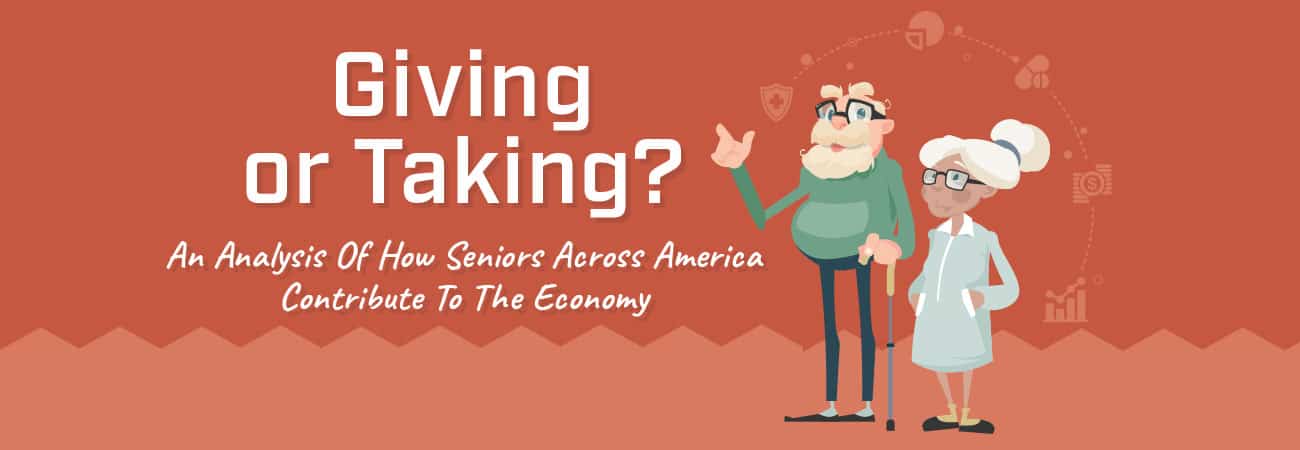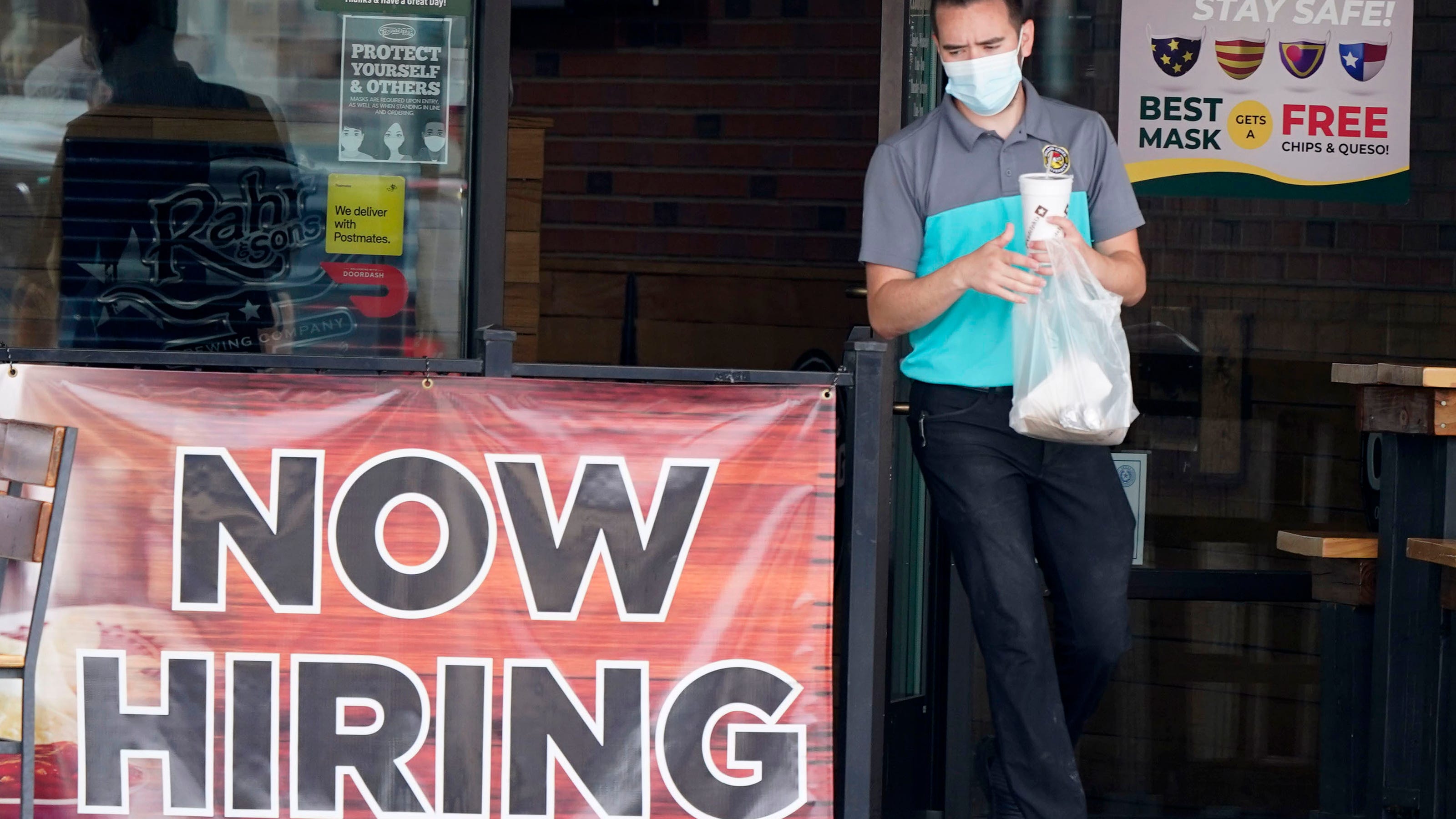You are using an out of date browser. It may not display this or other websites correctly.
You should upgrade or use an alternative browser.
You should upgrade or use an alternative browser.
U.S. economy grows at blockbuster 4.9% pace in third quarter
- Thread starter essentialsaltes
- Start date
Pommer
CoPacEtiC SkEpTic
- Sep 13, 2008
- 16,665
- 10,480
- Country
- United States
- Faith
- Deist
- Marital Status
- In Relationship
- Politics
- US-Democrat
What could someone with ten billion dollars need with all of them?I disagree.
The money belongs to the economy, it needs to go in at the very bottom and be allowed to percolate up through the system, generating profits all along the way.
If the money languishes at the very tippy-top for too long, the very bottom runs out of enough money to live on, soon thereafter a pallet of Spam
Upvote
0
Vambram
Born-again Christian; Constitutional conservative
- Dec 3, 2006
- 2,402
- 891
- 59
- Country
- United States
- Faith
- Baptist
- Marital Status
- Married
- Politics
- US-Republican
Americans are relying more on credit cards and dipping into their savings in order to spend according to the latest GDP report from the Bureau of Economic Analysis. Putting aside the fact that the growth in this GDP report relies heavily on businesses rebuilding inventories, it also reveals families are on unstable financial footing after their real disposable personal income declined by 1 percent, pushing them to rely on credit card debt and their savings to drive consumer spending. Inflation has re-accelerated to 3.5 percent and remains far above the Federal Reserve’s target. Even if the Fed doesn’t raise interest rates further, but keeps them elevated as expected, the dream of home ownership will be pushed out of reach for the near term with mortgage rates now at the highest in over two decades. Only Democrats could think this is a win, when it’s clear that Bidenomics is failing American families.
Upvote
0
I think a point that might go missing is that the 4.9% growth might be because (in some small part) the billions “given” to Ukraine (older weapons) means that we are buying new equipment for ourselves this boosting the defense sector and high-tide-raises-all-boats and like that?
Drilling down into the figures, and federal defense spending is a positive contributor, but not a major one.
Of the 4.9 percentage points of growth:
Personal consumption in goods & services is responsible for about 55% of growth.
Business spending/investment is responsible for about 27%.
Federal, state & local government spending is responsible for about 16%. Within that, defense spending is about 5.7%.
So, of each additional $17.55 being generated in the economy, $1 comes from defense spending. Over the last 12 months, it's about $1 per $28.
Bear in mind this though - the dollar value of defense aid to Ukraine and the actual value of defense aid to Ukraine are worlds apart.
For instance: Ukraine was recently supplied with ATACMS. These are M39 Block I missiles, which were priced at about $800,000 per unit when they were built. With inflation, this comes to little under $1.48 million as of FY2022. Reportedly 20 of them have been sent to date.
So, that's 20 x $1.48 million =$29.6 million.
But, these were obsolete missiles manufactured between 1991 and early 1997. These missiles were past the end of their ~20 year service lives and have been replaced by updated variants. Roughly 650 missiles of these missiles are being held in storage and were slated for eventual destruction.
So as a matter of accounting, their actual value has been completely written down. It's a totally depreciated asset that would have cost money for the Army to decommission and/or destroy. So, while the US has incurred some costs in maintaining, testing and shipping these missiles, the actual value is probably only a fraction of the $30 million sticker price.
Last edited:
Upvote
0
Inflation has re-accelerated to 3.5 percent and remains far above the Federal Reserve’s target. Even if the Fed doesn’t raise interest rates further, but keeps them elevated as expected, the dream of home ownership will be pushed out of reach for the near term with mortgage rates now at the highest in over two decades.
Core inflation - which is what central banks largely look at when making monetary policy decisions - fell again in 3Q2023, averaging 4.38% (against 4.61% in 2Q2022 and 6.29% in 3Q2022).
Headline inflation was 0.1% higher than market expectations, mostly due to fuel prices being stickier than expected (due to higher than expected amounts of US refining capacity going offline for seasonal maintenance).
Likely scenarios are a 'soft landing', with both core and headline inflation gradually returning to the roughly 2% target range around early 2025, without cutting too much into economic growth.
Upvote
0
- Aug 18, 2012
- 20,920
- 17,317
- Country
- United States
- Faith
- Christian
- Marital Status
- Married
Americans are relying more on credit cards and dipping into their savings in order to spend according to the latest GDP report from the Bureau of Economic Analysis. Putting aside the fact that the growth in this GDP report relies heavily on businesses rebuilding inventories, it also reveals families are on unstable financial footing after their real disposable personal income declined by 1 percent, pushing them to rely on credit card debt and their savings to drive consumer spending. Inflation has re-accelerated to 3.5 percent and remains far above the Federal Reserve’s target. Even if the Fed doesn’t raise interest rates further, but keeps them elevated as expected, the dream of home ownership will be pushed out of reach for the near term with mortgage rates now at the highest in over two decades. Only Democrats could think this is a win, when it’s clear that Bidenomics is failing American families.
It sounds like you are holding the Federal Government accountable for individual spending decisions.
What exactly do you expect the governent to do?
Upvote
0
The Barbarian
Crabby Old White Guy
- Apr 3, 2003
- 26,232
- 11,447
- 76
- Country
- United States
- Faith
- Catholic
- Marital Status
- Married
- Politics
- US-Libertarian
That's the problem. You see, the pandemic response team had been dissolved by Trump because it was implemented by President Obama, and he was doing what he could to destroy Obama's work. Just at the wrong time. So we were caught flat-footed, and the impact of 1.2 million dead Americans devastated the economy.Saving lives doesn't equate to a de facto economic improvement as the measures you speak of would've further disrupted the economy in ways that we have no way of knowing the extent of.
In order to save those lives, it would've had to have been a lockdown protocol that matched that of the countries that did save the most lives, and those countries experience a greater economic impact.
Upvote
0
- Sep 4, 2005
- 24,717
- 14,599
- Country
- United States
- Faith
- Atheist
- Marital Status
- Single
- Politics
- US-Others
We were "flatted footed" in terms of certain aspects of pandemic response.That's the problem. You see, the pandemic response team had been dissolved by Trump because it was implemented by President Obama, and he was doing what he could to destroy Obama's work. Just at the wrong time. So we were caught flat-footed, and the impact of 1.2 million dead Americans devastated the economy.
However, as noted, through a strictly economic lens, the only thing that devastated the economy were the measures themselves (forced business closures, etc...), not the fact that we lost a million people.
The lion's share of people who died were 70+
(the age that's typically not still in the job market - unless they're senators - and the age that's typically collecting benefits)
76 year old people passing away doesn't create worker shortages...paying 35 year olds to stay home, however, does.
Point of reference, Sweden took a more laid back approach, and as a result (per the IMF):
The IMF’s most recent estimate of countries’ financial support measures suggests that Sweden’s measures are well in line with those of several comparable countries, chiefly with other Nordic countries. The Swedish economy coped much better than that of many other European countries in 2020 and, so far, its recovery has been faster. In the second quarter of 2021 the Swedish GDP was back at the same level as before the pandemic.
Sweden had a death rate that was higher than their neighbors, but them opting for a more lax approach doesn't seem to demonstrate that they had worse economic impacts than others...they took a smaller economic hit, and recovered quicker.

UPDATE 2-Swedish economy surpasses pre-pandemic size, economists say
* Sweden imposed few restrictions during pandemic (Recasts on size of economy, add fresh economist comment)
Upvote
0
The Barbarian
Crabby Old White Guy
- Apr 3, 2003
- 26,232
- 11,447
- 76
- Country
- United States
- Faith
- Catholic
- Marital Status
- Married
- Politics
- US-Libertarian
No, that's wrong:We were "flatted footed" in terms of certain aspects of pandemic response.
However, as noted, through a strictly economic lens, the only thing that devastated the economy were the measures themselves (forced business closures, etc...), not the fact that we lost a million people.
Abstract
Between February 2020 and May 2022, one million Americans have died of COVID-19. To determine the contribution of those deaths to all-cause mortality in terms of life expectancy reductions and the resulting economic welfare losses, we calculated their combined impact on national income growth and the added value of lives lost. We estimated that US life expectancy at birth dropped by 3.08 years due to the million COVID-19 deaths. Economic welfare losses estimated in terms of national income growth supplemented by the value of lives lost, was in the order of US$3.57 trillion. US$2.20 trillion of these losses were in in the non-Hispanic White population (56.50%), US$698.24 billion (19.54%) in the Hispanic population, and US$579.93 billion (16.23%) in the non-Hispanic Black population. The scale of life expectancy and welfare losses underscores the pressing need to invest in health in the US to prevent further economic shocks from future pandemic threats.Assessing the impact of one million COVID-19 deaths in America: economic and life expectancy losses - Scientific Reports
Between February 2020 and May 2022, one million Americans have died of COVID-19. To determine the contribution of those deaths to all-cause mortality in terms of life expectancy reductions and the resulting economic welfare losses, we calculated their combined impact on national income growth...
Upvote
0
- Sep 4, 2005
- 24,717
- 14,599
- Country
- United States
- Faith
- Atheist
- Marital Status
- Single
- Politics
- US-Others
I would have some follow-up questions about their methodology on this one, or at least they should've delved into more details with regards to their calculations.No, that's wrong:
Abstract
Between February 2020 and May 2022, one million Americans have died of COVID-19. To determine the contribution of those deaths to all-cause mortality in terms of life expectancy reductions and the resulting economic welfare losses, we calculated their combined impact on national income growth and the added value of lives lost. We estimated that US life expectancy at birth dropped by 3.08 years due to the million COVID-19 deaths. Economic welfare losses estimated in terms of national income growth supplemented by the value of lives lost, was in the order of US$3.57 trillion. US$2.20 trillion of these losses were in in the non-Hispanic White population (56.50%), US$698.24 billion (19.54%) in the Hispanic population, and US$579.93 billion (16.23%) in the non-Hispanic Black population. The scale of life expectancy and welfare losses underscores the pressing need to invest in health in the US to prevent further economic shocks from future pandemic threats.
Assessing the impact of one million COVID-19 deaths in America: economic and life expectancy losses - Scientific Reports
Between February 2020 and May 2022, one million Americans have died of COVID-19. To determine the contribution of those deaths to all-cause mortality in terms of life expectancy reductions and the resulting economic welfare losses, we calculated their combined impact on national income growth...www.nature.com
We calculated the impact on national income growth supplemented by the value of lives lost, also known as full-income2, by transforming the excess hazard of COVID-19 to standardized mortality units (a 1 in 10 000 change in mortality risk), then calculating the population value of this risk change, rescaling to the life expectancy at age 35. We then multiplied by the value of a statistical life-year, calculated as a proportion of the income per capita. (in order to try to estimate output losses)
Looking a person's normal life expectancy from the time they're 35, and then getting average VSL, and then performing the mathematical exercise with covid and looking at the difference in the end numbers seems like it's leaving out a whole lot.
If "Bob Smith" is 35, and the average life expectancy without covid is 81, and the life expectancy with covid is 78, simply looking at his forecasted income/economic metrics/how much value he provided to his employers, etc..., and dividing that by how many years he has left to live seems like it's inaccurate as most people don't work up until the day they die. The abstract makes no mention about accounting for typical retirement ages.
For instance, getting those values for Bob Smith, and dividing the total number by 46 to get the average yearly value, and multiplying by 0.93 in order to get the -3 year adjustment operates on the assumption that Bob would've been a full participant in the economy until 81 without covid and to 78 with covid. Which we know is not the norm. Given that there's a good chance Bob will retire between 63-68, that's something that needs to be accounted for.
All of that aside, even if we pretend their methodology is perfect on this, it still doesn't hold a candle to the numbers that are attributable to forced business closures.
This study from USC highlights and compares.

USC Study: Mandatory business closures drove the economic decline during COVID-19 pandemic
A multidisciplinary team of USC researchers used a novel economic analysis to tally the $14 trillion cost of the COVID-19 pandemic to the U.S. economy.
 priceschool.usc.edu
priceschool.usc.edu
A trio of factors have driven the economic decline: deaths and illnesses; voluntary avoidance of activities that stimulate economic activity but which avoid infection; and mandatory business closures.
Business closures have had by far the greatest impact. During the first six months of the pandemic beginning in early 2020, for example, business closures accounted for a 26.3% decline in U.S. GDP, compared to a 12.2% decline through work avoidance.
Deaths and illnesses had the least effect because people who were no longer able to work were replaced by the large number of people who were unemployed by COVID.
Upvote
0
This site stays free and accessible to all because of donations from people like you.
Consider making a one-time or monthly donation. We appreciate your support!
- Dan Doughty and Team Christian Forums
The Barbarian
Crabby Old White Guy
- Apr 3, 2003
- 26,232
- 11,447
- 76
- Country
- United States
- Faith
- Catholic
- Marital Status
- Married
- Politics
- US-Libertarian
If you had gone to the link to read the report, you'd have already realized this.Looking a person's normal life expectancy from the time they're 35, and then getting average VSL, and then performing the mathematical exercise with covid and looking at the difference in the end numbers seems like it's leaving out a whole lot.
If "Bob Smith" is 35, and the average life expectancy without covid is 81, and the life expectancy with covid is 78, simply looking at his forecasted income/economic metrics/how much value he provided to his employers, etc..., and dividing that by how many years he has left to live seems like it's inaccurate as most people don't work up until the day they die. The abstract makes no mention about accounting for typical retirement ages.
Perfection is the enemy of the excellent. C'mon. Let's try to be real, here.All of that aside, even if we pretend their methodology is perfect on this
And the part you're missing is that the business closures were temporary for the duration of the peak time of the pandemic. The dead people stay dead. You lose a lifetime of economic activity from them. Yes, even retired people pump the economy due to their purchases and other activities.
It's so obvious, I'm surprised that I have to point this out.
Upvote
0
- Sep 4, 2005
- 24,717
- 14,599
- Country
- United States
- Faith
- Atheist
- Marital Status
- Single
- Politics
- US-Others
I did go to the link, which is where I copy and pasted their methodology from in the italicized part of my post.If you had gone to the link to read the report, you'd have already realized this.
Nobody's claiming "better is the enemy of perfect"Perfection is the enemy of the excellent. C'mon. Let's try to be real, here.
And the part you're missing is that the business closures were temporary for the duration of the peak time of the pandemic. The dead people stay dead. You lose a lifetime of economic activity from them. Yes, even retired people pump the economy due to their purchases and other activities.
It's so obvious, I'm surprised that I have to point this out.
And no, you don't lose a "lifetime of economic activity" from deaths where the lion's share cohort are 70 and older. You lose 8-12 years of partial economic activity from them. You lose a lifetime of economic activity when you're talking about people who are 16-25.
Per the study I linked, those closures cost the US economy $14 Trillion dollars.
What I'm saying is that $14 Trillion accumulated in 4 years (+ an additional $5 trillion from "avoidance") is a bigger economic disrupter than $3.5 Trillion (if that's even a valid estimate...as noted, the source you provided isn't clear on the minutia of their calculations), and if we had done more (and for longer) to bring that 2nd number down, that first number would've been even higher.
Seems like you're all-in on this notion that "if we just had Obama at the helm instead of Trump" (or at least followed Obama's plan) we could've saved a bunch of lives and the economy wouldn't have been as disrupted. (I get it, you're not a Trump fan...neither am I)
The former is true, the latter is not. We would've saved lives, but we would've taken an even bigger economic hit.
As well as New Zealand handled the "stopping spread" aspect of covid, those measures weren't without their economic consequences

New Zealand: Economy slips into recession after interest rate hikes
The country's central bank has aggressively raised interest rates since October 2021.
New Zealand economy to remain sluggish for 2 years, although doing better than feared, figures show
New Zealand’s economy is expected to remain sluggish for another two years, although the overall picture is rosier than many observers had feared, new figures indicate.
Last edited:
Upvote
0
The Barbarian
Crabby Old White Guy
- Apr 3, 2003
- 26,232
- 11,447
- 76
- Country
- United States
- Faith
- Catholic
- Marital Status
- Married
- Politics
- US-Libertarian
Then it was probably wrong for you to set the bar there.Nobody's claiming "better is the enemy of perfect"
As you just learned, this was a huge economic hit, caused by deaths. Lifetimes for the older might be shorter, but they still count both economically and personally.And no, you don't lose a "lifetime of economic activity" from deaths where the lion's share cohort are 70 and older. You lose 8-12 years of partial economic activity from them.
If we did as well as New Zealand, there would have been about 400,000 deaths instead of 1,200,000.
And the economic impact of seniors, many of who choose to work after 67, is surprising:

Giving Or Taking? An Analysis Of How Seniors Across America Contribute To The Economy | SeniorLiving.org
More than 90 million Americans are of an age where they can ask for senior discounts at restaurants, and the American population as a whole is getting older and older: Those 55 and older are the largest age group in the United States today. As more Americans reach retirement age ...
Upvote
0
- Aug 11, 2023
- 2,363
- 1,423
- 24
- Country
- United States
- Faith
- Christian
- Marital Status
- Single
That is 100% true. But we should be focusing on the millions in poverty, and not as much so as the millions of dollars corporations rake in.Millions is a number, too. Sort of.
Upvote
0
This site stays free and accessible to all because of donations from people like you.
Consider making a one-time or monthly donation. We appreciate your support!
- Dan Doughty and Team Christian Forums
- Sep 4, 2005
- 24,717
- 14,599
- Country
- United States
- Faith
- Atheist
- Marital Status
- Single
- Politics
- US-Others
A) I never set the bar at perfect, I've referenced the concept of countervailing interests numerous times (which implies a pros/cons trade-off)Then it was probably wrong for you to set the bar there.
As you just learned, this was a huge economic hit, caused by deaths. Lifetimes for the older might be shorter, but they still count both economically and personally.
If we did as well as New Zealand, there would have been about 400,000 deaths instead of 1,200,000.
And the economic impact of seniors, many of who choose to work after 67, is surprising:

Giving Or Taking? An Analysis Of How Seniors Across America Contribute To The Economy | SeniorLiving.org
More than 90 million Americans are of an age where they can ask for senior discounts at restaurants, and the American population as a whole is getting older and older: Those 55 and older are the largest age group in the United States today. As more Americans reach retirement age ...www.seniorliving.org
B) And as you just learned, the cost of business closures and young people being encouraged to stay home was 3-4x what the cost of the loss of life we experienced.
Reiterating again, the economic cost of the business closures was $14 Trillion dollars.
Thus far, the biggest number you've provided with regards to the impact of the people who died from covid was $3.5 Trillion
So, by the numbers you provided, if $3.5 Trillion is what the 1.2 million deaths costs us (economically speaking), and we would've only had 400k instead had we "just been like New Zealand". That turns that $3.5T into $1.1T. Doing that approach would've turned $14T into a much bigger number...but even if it didn't, recouping $2.4 Trillion in losses in one isolated area (at the expense of losing $14 Trillion) is the equivalent of saying "I'm going to drive from New York out to Idaho because there's a grocery store there having a sale on potato chips...sure, it'll cost me $165 in gas to get there...but it'll save me $1.29"
As I noted in this thread (or maybe it was the other one where this came up)... Yes, having a plan is better than not having one...but there's never going to be a magic plan that allows for mass business closures and stay-at-home orders, that doesn't disrupt the economy more than just leaving it open if one is just looking at economic indicators.
Now, am I suggesting "leave it all open, if they die, they die"...no, society was right to weigh some of those social costs and take some mitigation efforts.
However, and this is just brutal honesty, no society can function on the premise of "do whatever it takes to make sure the weakest of the herd survives a few extra years at the expense of every other facet of society". You can make certain trade-offs to mitigate where it makes sense, but you can't upend every other institution in society for a long-term period in order to save 800k lives of people who, on average...statistically speaking, only had 6-8 years of life anyway.
Sounds cold, but it's a pragmatic reality. Same way it's a pragmatic reality that we could've saved 4 million lives over the past decade had we just banned motorized transportation and made people walk everywhere, but that's simply not feasible.
Last edited:
Upvote
0
Ana the Ist
Aggressively serene!
GDP grew at an annual rate of 4.9 percent from July to September, the highest reading since 2021
New government data released Thursday by the Bureau of Economic Analysis shows that gross domestic product expanded between July and September, capping five straight quarters of growth and eluding a long-feared recession.
That spending was broad-based in the third quarter, with U.S. households doubling down on both necessities, such as housing, utilities and prescription drugs, as well as luxuries including dining out, hotel stays and recreation. Businesses and the federal government also continued to spend, though GDP was dragged down by lower non-residential investments.
Overall, the latest spike in GDP is more than double the previous quarter’s annual growth rate of 2.1 percent.
Great time to invest...because this is mostly corporate growth.
Upvote
0
The Barbarian
Crabby Old White Guy
- Apr 3, 2003
- 26,232
- 11,447
- 76
- Country
- United States
- Faith
- Catholic
- Marital Status
- Married
- Politics
- US-Libertarian
That's what you did. Would you like me to show you, again?A) I never set the bar at perfect,
All of that aside, even if we pretend their methodology is perfect on this
If you had actually read it, you'd have learned that it wasn't even 3-4 times the cost of deaths during the pandemic. But the economic consequences of the loss of life goes on indefinitely while temporary measures don't. Think.And as you just learned, the cost of business closures and young people being encouraged to stay home was 3-4x what the cost of the loss of life we experienced.
It's considered a bad idea to fake quotes for others. Avoid it. Merely pointing out that New Zealand did much better at preventing deaths because they had a logical and effective plan to do so.So, by the numbers you provided, if $3.5 Trillion is what the 1.2 million deaths costs us (economically speaking), and we would've only had 400k instead had we "just been like New Zealand".
Although somewhat abruptly sidelined from their normal influence within the New Zealand economy, representatives of the business sector continued to feature in media reporting: lobbying against perceived discrepancies in various industries,[6] publicising habitual evaluations such as business-confidence indicators[7][8] and economic outlooks,[9] and itching for an early return to "business as usual".[10]
On 17 September 2020, New Zealand economy officially entered into a recession, with the country's gross domestic product contracting by 12.2% in the June quarter due to the COVID-19 pandemic. The retail, accommodation, hospitality, and transportation sectors were adversely affected by the international travel ban and a strict nationwide lockdown.[11][12][13]
After successfully containing the virus, the New Zealand economy had sharp growth in what is known as a V-shaped recovery and ended the year with an overall economic expansion of 0.4%, better than the predicted 1.7% contraction.[14] Unemployment also dropped to 4.9% in December 2020, down from a peak Covid effected rate of 5.3% in September.[15]

Economic impact of the COVID-19 pandemic in New Zealand - Wikipedia
And here's the irony. Consider the U.S. economy with far less restrictions under Trump:
The September numbers from the Labor Department report reflected a bounce-back in the economy; the unemployment rate reached 13.3% in May but fell to 7.9% in September. Nonetheless, this is the highest unemployment rate preceding a presidential election since the government began tracking monthly rates in 1948

Fact check: Chart of job growth by president shows historic unemployment under Trump
A post calling Trump the "worst jobs president" holds true based on nonfarm payroll data compared across 13 presidencies.
www.usatoday.com
New Zealand, with very strict controls in place, saw unemployment peak at 5.3%. The United States, with Trump "downplaying" the danger, and with much fewer controls had a peak unemployment of 13,3%. Which pretty much debunks the economic damage story.
It's a bad idea to fake quotes. Avoid it.However, and this is just brutal honesty, no society can function on the premise of "do whatever it takes to make sure the weakest of the herd survives a few extra years at the expense of every other facet of society".
You could save billions by taking cops off traffic duty, too. You'd save more money than the costs of dealing with the subsequent rise in traffic deaths. Should we do that as well, since it's a "pragmatic reality?"Sounds cold, but it's a pragmatic reality.
Last edited:
Upvote
0
The Barbarian
Crabby Old White Guy
- Apr 3, 2003
- 26,232
- 11,447
- 76
- Country
- United States
- Faith
- Catholic
- Marital Status
- Married
- Politics
- US-Libertarian
The dirty little secret that neither republicans nor democrats want the voters to know, is business is usually better under democrats than it is under republicans.Great time to invest...because this is mostly corporate growth.
Since JFK, the average growth in GDP under democrat presidents averages 21.8%.
In the same period, the average growth in GDP under republican presidents averages 13.8.
GDP and GDP Growth By President: Compare GDP Across US Presidents
Compare GDP and GDP growth performance for all US presidents since 1961!
Upvote
0
This site stays free and accessible to all because of donations from people like you.
Consider making a one-time or monthly donation. We appreciate your support!
- Dan Doughty and Team Christian Forums
Great time to invest...because this is mostly corporate growth.
It wasn't though. Personal consumption was the largest driver of economic growth for 3Q2023. Corporate growth was responsible less than 1/2 of the contribution to growth played by consumption and investment by individuals.
"Corporate growth" is hard to quantify, because it's not captured directly by any single economic metric. If you use Gross National Product as a proxy, then the corporate growth rate was about 2%. If you take direct private investment, then corporate growth was essentially flat. Non-residential investment, another proxy measure, actually contracted (-0.1%) in the quarter.
The latter two are quite concerning, as it could indicate businesses are buttoning down and reducing spending in expectation of worse economic conditions ahead. Equally concerning is the fact that disposable personal income slowed in the quarter to 1.9% (albeit after five quarters of rapid growth). That might strangle personal consumption growth in the next few quarters, which could be very bad for economic growth.
Upvote
0
Similar threads
- Replies
- 3
- Views
- 316
- Replies
- 0
- Views
- 86
- Replies
- 10
- Views
- 530
- Replies
- 504
- Views
- 8K
